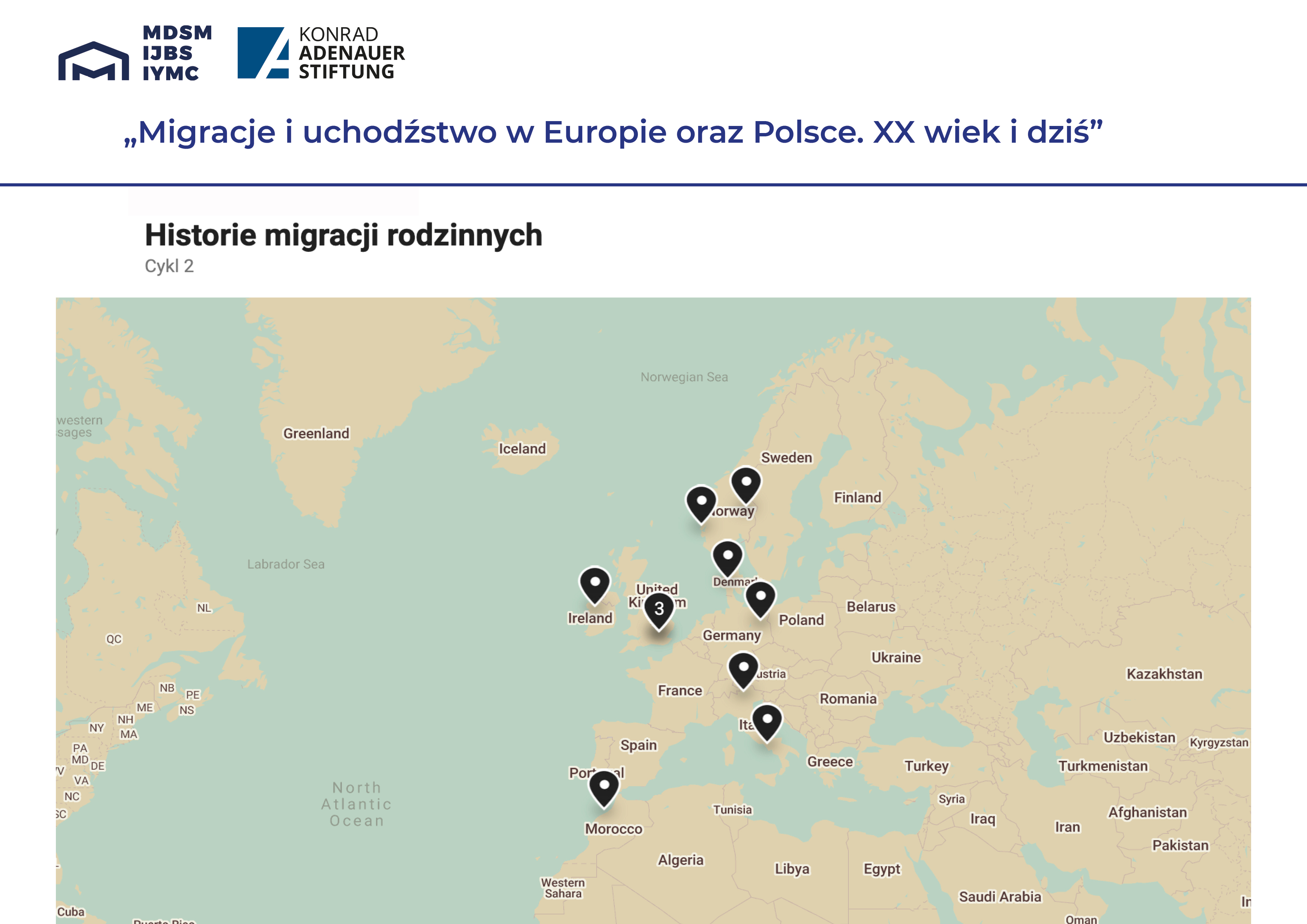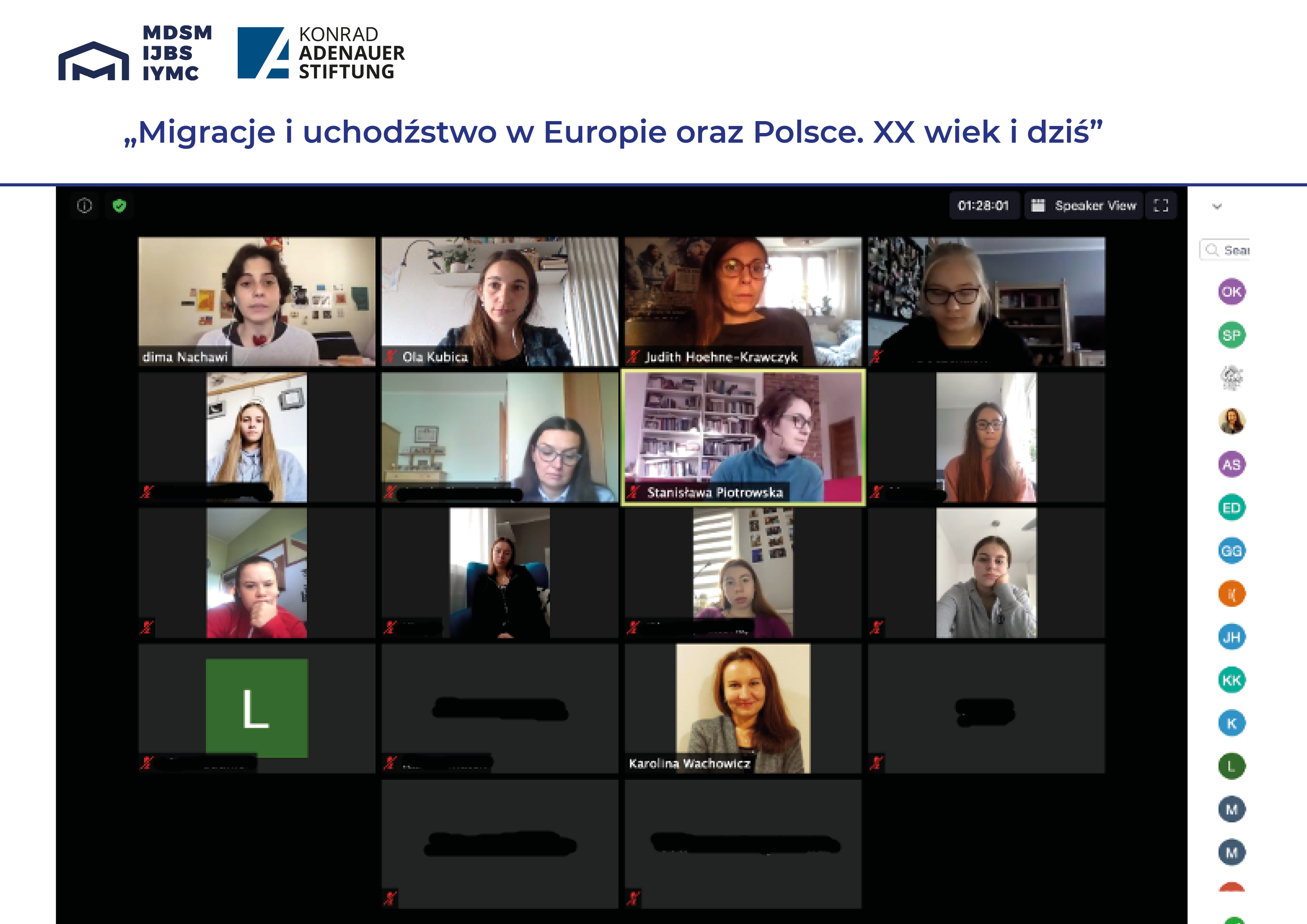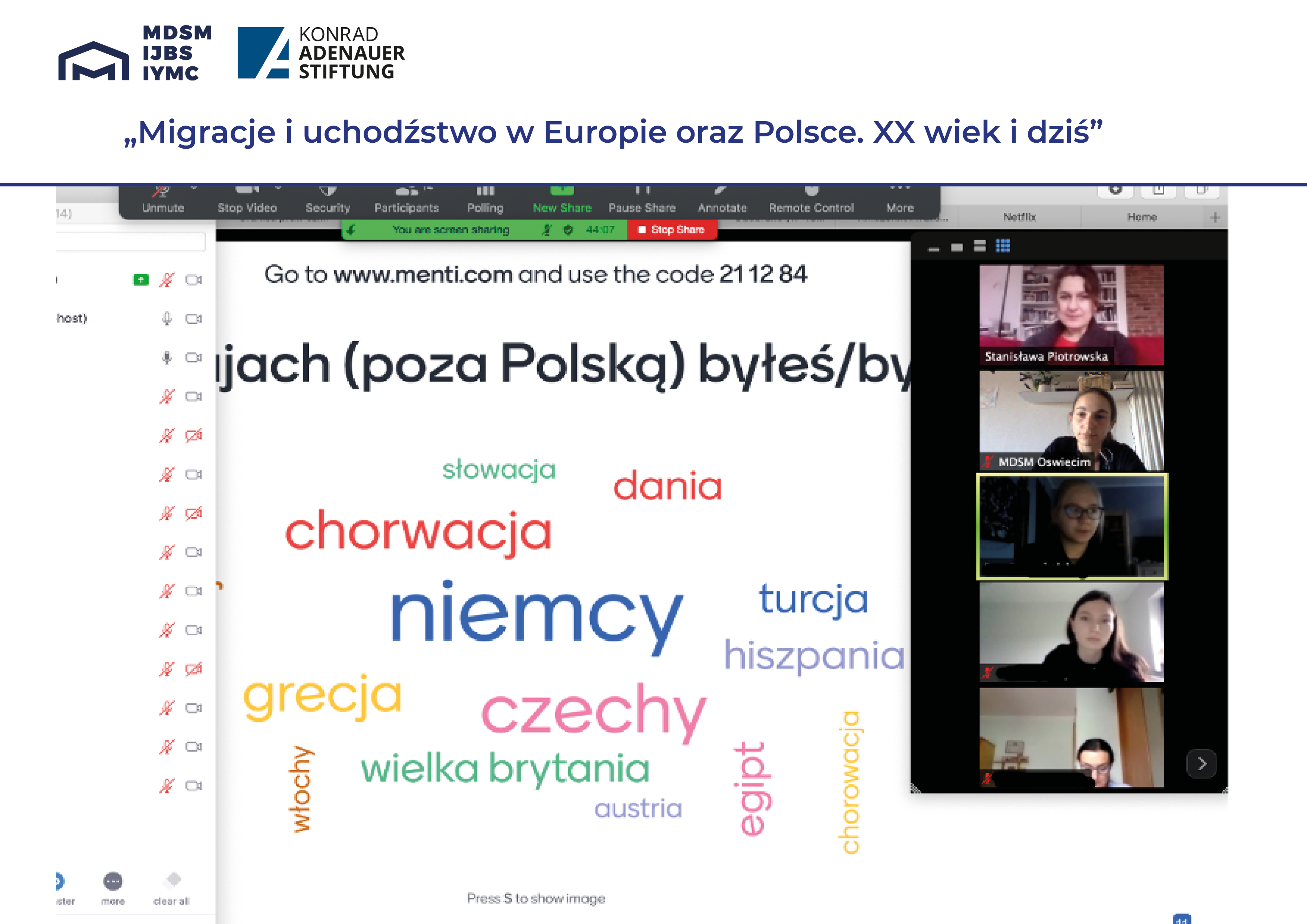On-line workshops on migration for young people
In November 2020, the International Youth Meeting Centre and the Konrad Adenauer Foundation run two pilot workshop series “Migration and forced displacement in Europe and Poland. 20th century and today”. Almost 30 young people from high schools in Oświęcim, Kęty, Szczecin and Wronki.
During the workshop series, the participants expanded their knowledge on migration and forced displacement. They learned about the directions of migration of Poles in the 20th century and examined stories of several Polish emigrants. As part of an assignment between the workshops, the students conducted interviews with their relatives or acquaintances who emigrated from Poland.

The participants discussed human rights related to migrations and forced displacement, talked about the contemporary migration crisis and its impact on the situation of migrants and refugees in Europe. They examined more in-depth the situation in Syria, a country from which there is the highest number of displaced persons nowadays. More than six and a half million Syrians were forced to leave their homes over the past few years. One of them, Dima Nachawi, was a special guest of one of the workshops. Dima, who currently lives in Lebanon, talked about her work as an artist and human rights activist. Some examples of her work can be found here.
The participants, as well as their teachers, appreciated a chance for widening their knowledge on a topic, which they find interesting, timely and important. The young people were also glad to have the opportunity to discuss migration with their peers, especially as part of the on-line groupwork, and with their relatives and friends as part of an assignment. The meeting with Dima Nachawi left a great impression on them. In their feedback from the workshop series, many of them emphasised that such live meetings, even if they take place online, offer an invaluable opportunity for discovering the perspectives of particular people who experience events about which we can usually only hear second-had accounts from the media.


Coordination
Dr Aleksandra Kubica – researcher and educator working on the topics of migration and refugees, historical education and oral history in Poland and the UK, with the support of Stanisława Piotrowska.
